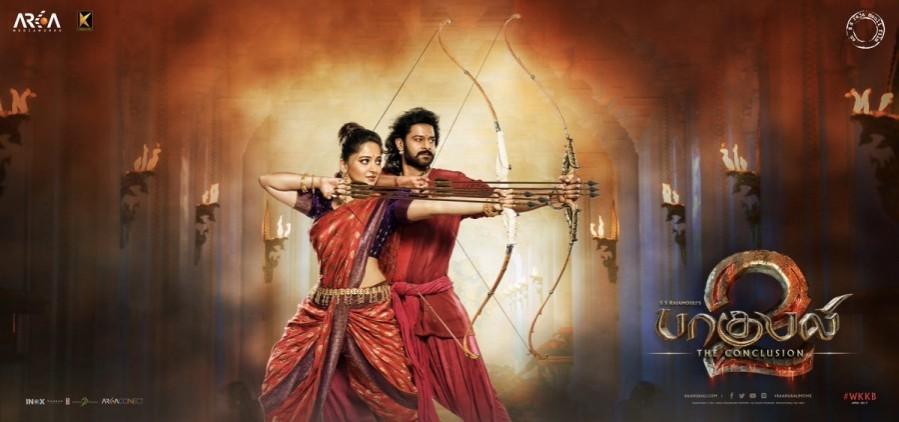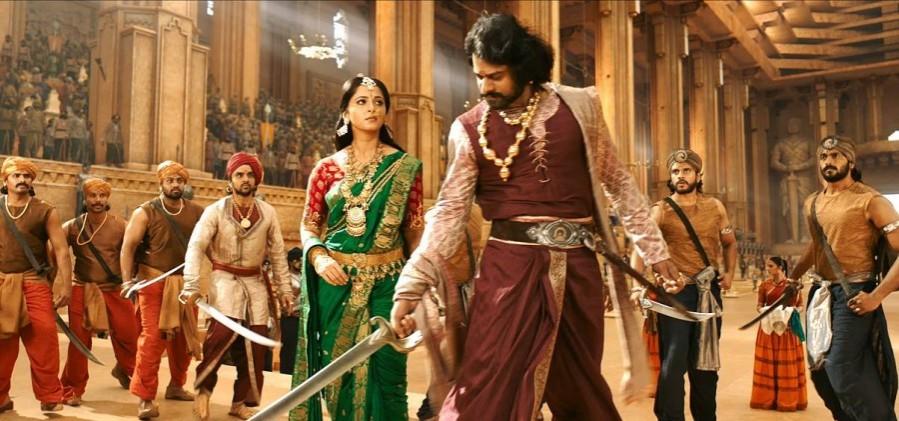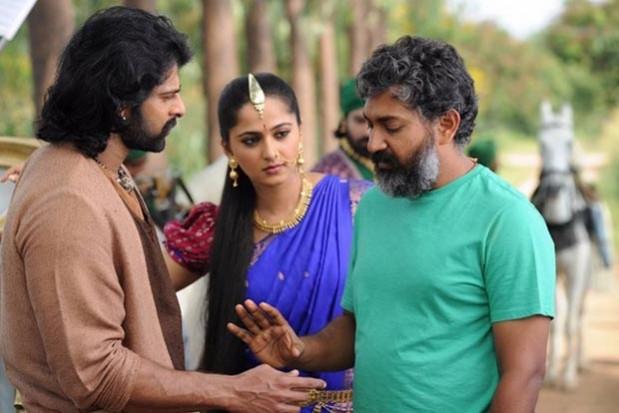
SS Rajamouli's Baahubali 2 (Bahubali 2) has changed the face of Indian cinema with its grandeur and record breaking box office figures. The film's visual extravaganza along with the powerful performances by the stars has made it a clear winner in all aspects. However, there are a couple of instances in Baahubali 2 that somehow encourages gender bias.
Also read: Ram Gopal Varma makes Sridevi regret more for saying no to Baahubali
Prabhas has portrayed the mighty and at the same time the benevolent character of Baahubali to great satisfaction. First, he is seen as the unconquerable, kind-hearted Amarendra Baahubali, and then he appears as the former's son Mahendra Baahubali, who is similar to his father, both in looks as well as nature. Both the characters have been highly appreciated and celebrated by the audience.
Also read: KRK takes U-turn after ridiculing Baahubali 2 and SS Rajamouli
Especially, Mahendra Baahubali's character for its unbeatable strength coupled with his high morals and respect for his wife has touched a chord with the audience. Prabhas, who was a regional actor until before, instantly became a global star with the success of the first part, and then Baahubali 2. Girls have been going gaga over Prabhas, and Baahubali's character has become a dream husband for any girl.
Even director SS Rajamouli has been receiving all round applause for his epic drama. He and the entire team has indeed invested a lot of time, money and hard work in making Baahubali 2 a rage. Nevertheless, there are a couple of sequences in the movie that in a way encourages gender bias, and went unnoticed by all.

There is a scene where Prabhas' character of Amarendra Baahubali engages in a conversation with his wife Devasena (Anushka Shetty) just after their marriage. The bride expresses her sadness at Baahubali's mother Shivagami (Ramya Krishnan) being miffed with him for marrying Devasena. This is when Prabhas' character says something that though sounds sweet, again proves the common preference of a boy child over a baby girl.
Devasena: "Mere karran aap dono ke beech darrar agayi, mujhe iska bohot dukh hai (I am very sorry that your closeness with your mother got affected because of me)."
Baahubali: "Maa ka ruthna tabhi tak hai jab tak hum unhe ek pota nehi de dete (Mother's anger will subside as soon as we give her a grandson)."
Even a "perfect" man and the "most ideal" husband like Baahubali wants a male child, and suggests that a baby girl is not even a consideration. The dialogue also implies that only a baby boy can make the grandmother happy. It was their first night after marriage, and the husband already knows that they will have a boy.

In another sequence in Baahubali 2, similar belief seems to be imposed. A ceremony is organised for the pregnant Devasena, where well-wishers are shown, offering presents and blessings to her. The character of Kumar Varma, played by Subbaraju, gifts a tiger skin to the would-be-mother, saying something that again makes it apparent that everybody was expecting a boy child.
Kumar Varma to Devasena while offering the gift: "Sherni ke kokh se ek sher hi janmega.. Nanhe sher ke liye (A tigress always gives birth to a tiger..this is for the little tiger)." Moreover, a background song was also heard at the start of the scene that again suggests everybody is all set to welcome a baby boy.

Gender bias has been a major issue in India, a reason why feminism has witnessed a rapid rise in popularity across the country of late. Despite being a punishable offence, cases of female foeticide are common, especially in rural areas of India. In such a scenario, if a huge-scale movie like Baahubali 2, consciously or unconsciously, encourages gender prejudice, it certainly would not send a good message to the already prejudiced minds.
Let us know what you feel in the comments below.


!['Had denied Housefull franchise as they wanted me to wear a bikini': Tia Bajpai on turning down bold scripts [Exclusive] 'Had denied Housefull franchise as they wanted me to wear a bikini': Tia Bajpai on turning down bold scripts [Exclusive]](https://data1.ibtimes.co.in/en/full/806605/had-denied-housefull-franchise-they-wanted-me-wear-bikini-tia-bajpai-turning-down-bold.png?w=220&h=135&l=50&t=40)











!['Had denied Housefull franchise as they wanted me to wear a bikini': Tia Bajpai on turning down bold scripts [Exclusive]](https://data1.ibtimes.co.in/en/full/806605/had-denied-housefull-franchise-they-wanted-me-wear-bikini-tia-bajpai-turning-down-bold.png?w=220&h=135)


![Nayanthara and Dhanush ignore each other as they attend wedding amid feud over Nayanthara's Netflix documentary row [Watch]](https://data1.ibtimes.co.in/en/full/806599/nayanthara-dhanush-ignore-each-other-they-attend-wedding-amid-feud-over-nayantharas-netflix.jpg?w=220&h=135)